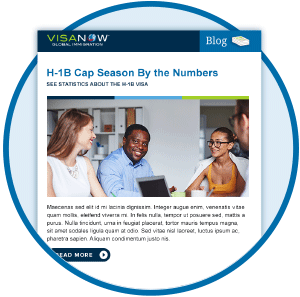By VISANOW Contributor|2013-10-31T18:06:16-05:00April 23, 2013|
We hear it every day: “I want to apply for DACA, but I’m afraid I’ll be denied because I have a criminal record. What do I do?”
It depends on what kind of criminal activity we are looking at, but in many cases, we are glad to tell DREAMers that their criminal record doesn’t automatically disqualify them from receiving a grant of deferred action.
The requirements for deferred action which relate to an applicant’s criminal background are as follows; the applicant must:
- Never have been convicted of a felony;
- Never have been convicted of a significant misdemeanor;
- Have not been convicted of three or more other misdemeanors; and
- Not otherwise pose a threat to national security or public safety.
Immigration-related offenses
Because of their undocumented status, many DREAMers have used alternative methods to work, drive, or travel. This is often a cause for concern to deferred action applicants who aren’t sure where they stand with DACA.
For example, in some states, it is considered a misdemeanor to drive without a license or to drive without valid auto insurance, and we’ve talked to several individuals who have been stopped by officials and charged with these offenses on multiple occasions. Does this mean they can’t apply for deferred action?
Generally speaking, the USCIS is largely overlooking immigration-related offenses when it comes to making a decision about deferred action. They understand that many applicants will have some offenses on their record as a result of living in the U.S. up until now without legal status, and, for the most part, these offenses are not their primary concern.
This also applies to instances where an applicant has used someone else’s, or a made-up, social security number to get a job in the U.S. The USCIS is unlikely to hold this against you during the application process.
However, it is important to note that when you receive your new social security number after you get approved, you will be required to update your information with your employer; and there are no laws that prevent your employer firing you for falsifying information, even if the USCIS does not hold it against you for immigration purposes.
While we haven’t heard any reports of this yet, we want to make sure that DREAMers are aware and can make informed decisions during the application process.
Multiple misdemeanors & the effect on DACA
For individuals who have multiple misdemeanors on their record, we strongly recommend that you consult with your immigration attorney about how to proceed with your application.
While you may be tempted to avoid mentioning these occurrences, it is imperative that you disclose this information to your attorney, no matter how many years ago the events happened. Your immigration attorney will be able to help you make an informed decision about whether or not to apply for deferred action, or be able to let you know if there are any other forms of legal status that may apply to your situation.
The danger in omitting any criminal activity on your record is that during your background check and biometrics analysis, this information will come up anyway; if the USCIS was otherwise on the verge of approving your application, your upfront and honest disclosure about your criminal history could mean the difference between your DACA approval, or getting denied completely.
Public safety and national security
Although this element of the deferred action requirements seems more vague, it is meant to eliminate applicants who are involved in activities which may endanger the U.S. and its residents.
For the purposes of deferred action (according to the USCIS), this can include gang membership, attempted terrorist activities or affiliations, participation in an event which endangers the U.S., or recurring criminal activity.
It is important to note that the USCIS reviews your entire background holistically, and attempts to make a decision about your approval based on “the totality of the circumstances.”
This means that you shouldn’t let one single event or offense dictate whether or not you apply, but you should work with an immigration attorney who is experienced with deferred action when you are making a decision for your future.
How your DACA attorney can help
If you have concerns about your criminal history, and how it might affect your eligibility for deferred action, you should get in touch with a qualified immigration attorney who can help walk you through the implications and ramifications of disclosing your criminal history to the USCIS.
Additionally, your criminal history and background check are not the only elements of your deferred action application; a helpful, qualified attorney can help you through the other aspects of applying for DACA, as well.
For help choosing the right attorney for you, take a look at some “do’s and don’ts” of working with an immigration attorney.
Do you have questions about your legal status? You can contact us today to get answers to your most pressing questions, or connect with us on Facebook and Twitter.



